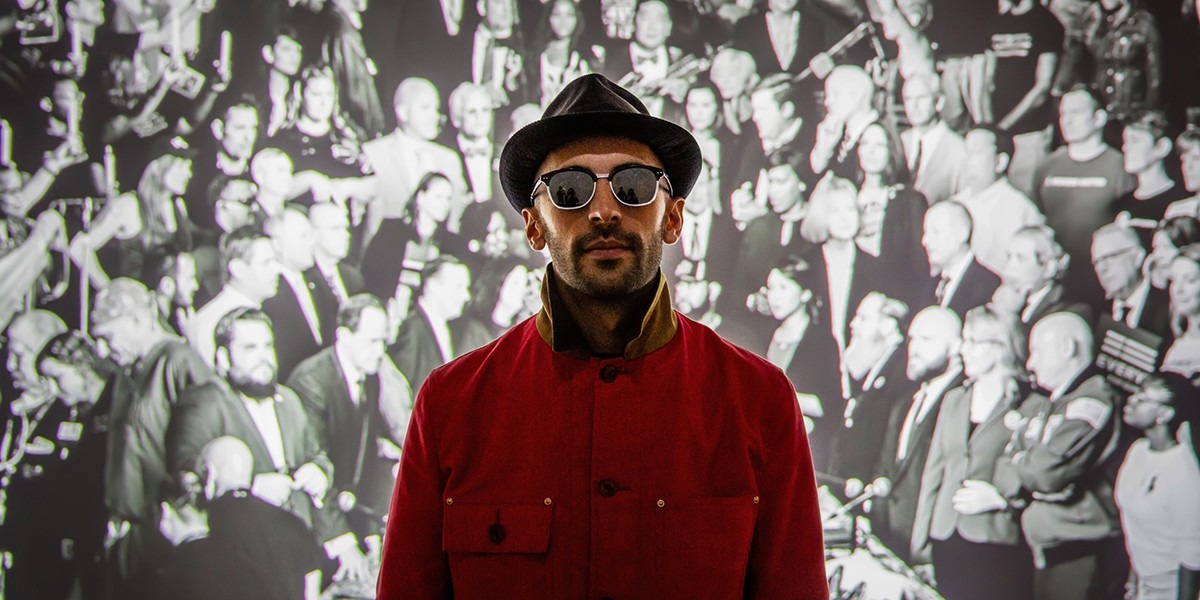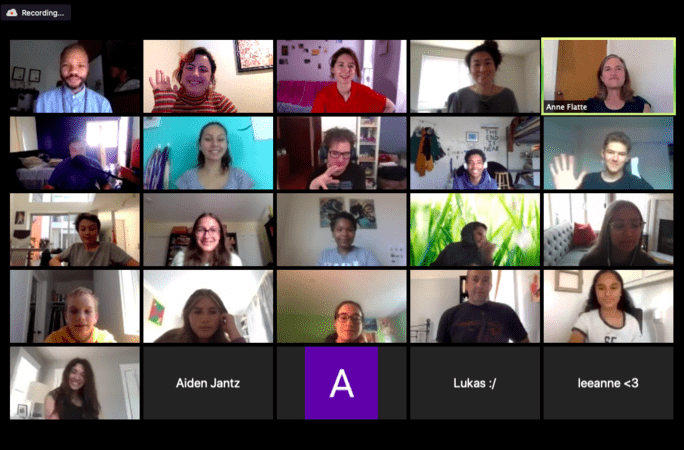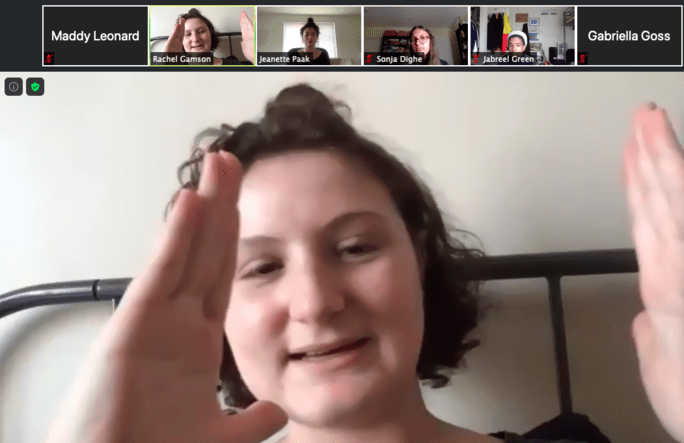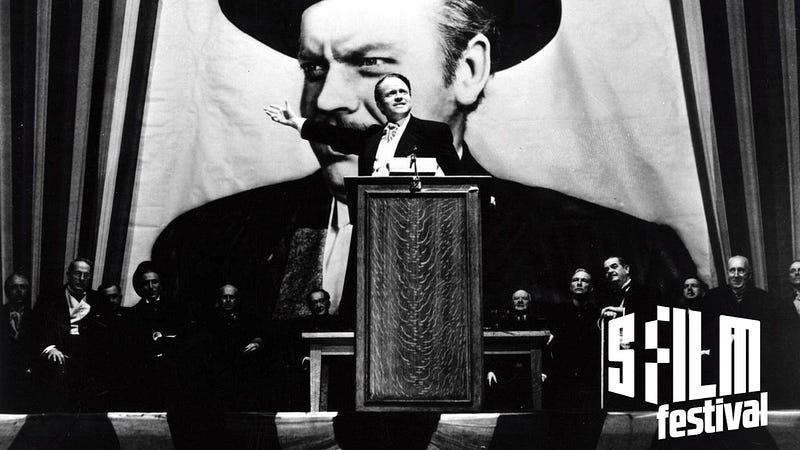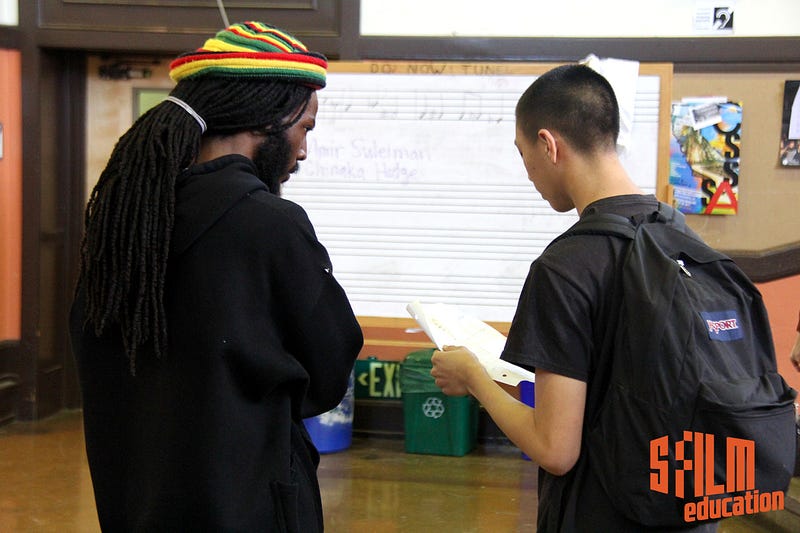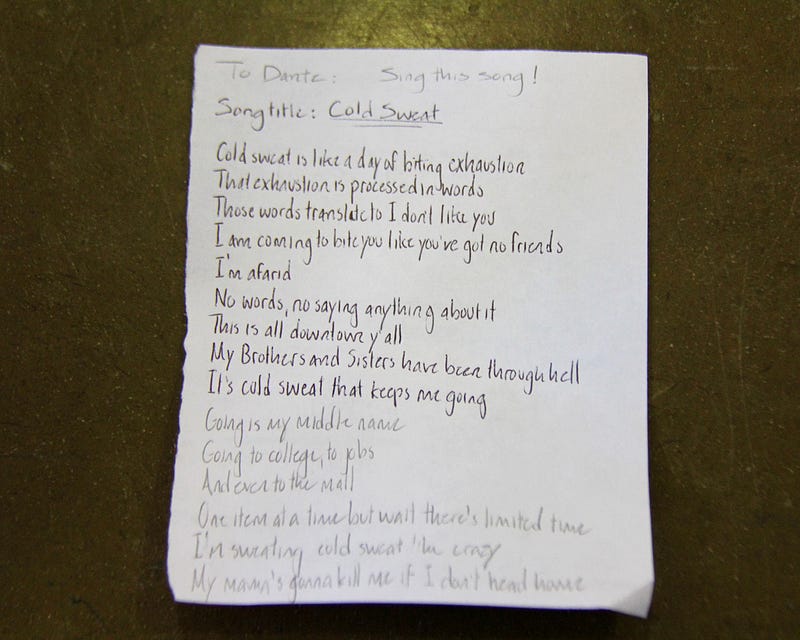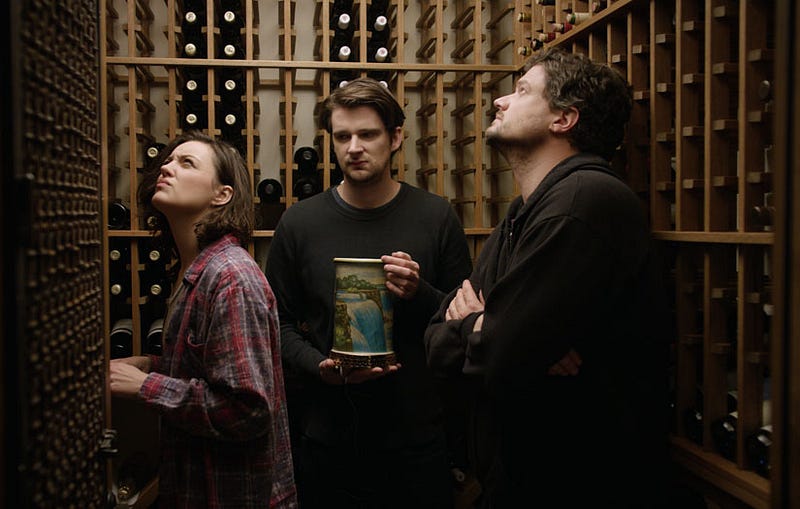COMMUNITY AND CONNECTION THROUGH ART: THE MAKING OF “ONE THOUSAND STORIES”
by Tasha Van Zandt
“We tell our stories in order to live.” — Joan Didion
Storytelling is at the core of humanity. Long before humankind developed the tools to read or write, we shared information in the form of oral storytelling. Humans have been sharing stories since we first learned to communicate, and it is the device that has always connected us. As generations grow older, it is the stories we tell that are passed down that shape our future generations and the way we understand the world. As we look back on our history, it is the stories of our past that shape our present.
From the Chauvet Cave paintings found in France, to the songlines of Indigenous Australians, to the Epic of Gilgamesh, to the Egyptian hieroglyphics, these stories give messages to future generations. Today, we tell stories through countless methods, and they are the web that guide the way we structure our lives. Through the experience of processing stories, we are able to expand our understanding and better connect with the world around us. Story at its most basic level is a device designed to unify people and is the way that we relate. In reality, we are all storytellers, building the web of the understanding of the world around us through the tales we tell. When we ask “how are you?” on a daily basis, we are asking for a story. We are asking each other every day to be storytellers in some small way. It is the tool that connects us all and holds the profound ability to build cultural bridges that lead to greater global understanding.
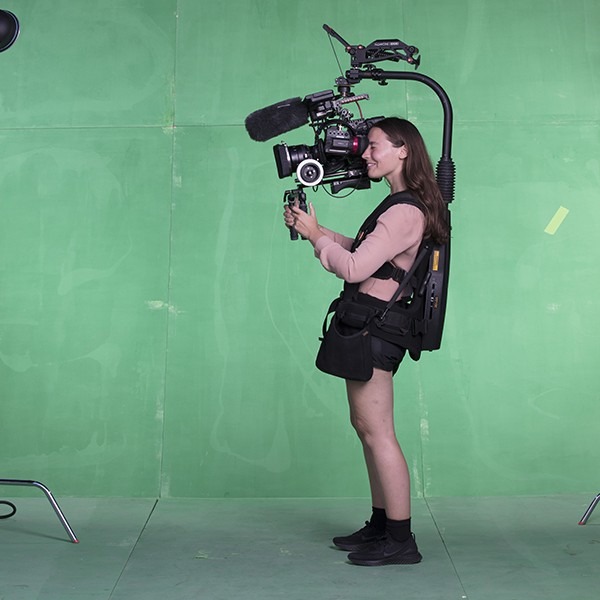
For me, being a storyteller is at the core of who I am. Documentaries are one of the most profound forms of storytelling as they allow others to see the world from a new perspective. They so often can be a tool for connection, education, and growth. Documentaries often motivate us to evaluate and ask critical questions of ourselves and the world around us, leaving us with answers that can transform our own worldview. As a documentary filmmaker, I’m driven to telling stories that spark change and create impact. I’ve been drawn to the power of stories since as far back as I can remember. Now, in this time when we are all part of the same story due to the pandemic, I have been thinking more deeply about storytelling as a tool for connection and community. As the first generation in my mother’s family to be born in the United States, stories were the tool that connected me with our history and expanded my worldview. The stories my family told bolstered my own personal history and connected me with the path I wanted to pave. It is through storytelling that I realized the power of connection and community.
My short documentary film One Thousand Stories: The Making of a Mural explores this power of storytelling as a tool for connection. The film follows renowned French artist JR in the creation of his first ever video mural project, The Chronicles of San Francisco, which brought together over 1,200 people into one work of art. I happened upon the project very serendipitously while walking through the Outer Sunset in San Francisco. I stumbled upon a 53-foot semi-truck trailer emblazoned with a large pair of wheat-pasted black and white eyes on the side. Upon further inspection, I realized that the truck was serving as a mobile photo and video studio for artist JR, whose work I had admired for years. JR and his team were on their first day of a month-long project called The Chronicles of San Francisco, which documented the residents of the city through video portraits and audio recordings. As I approached the truck, I was invited to become one of the first participants of the mural on the very first day.
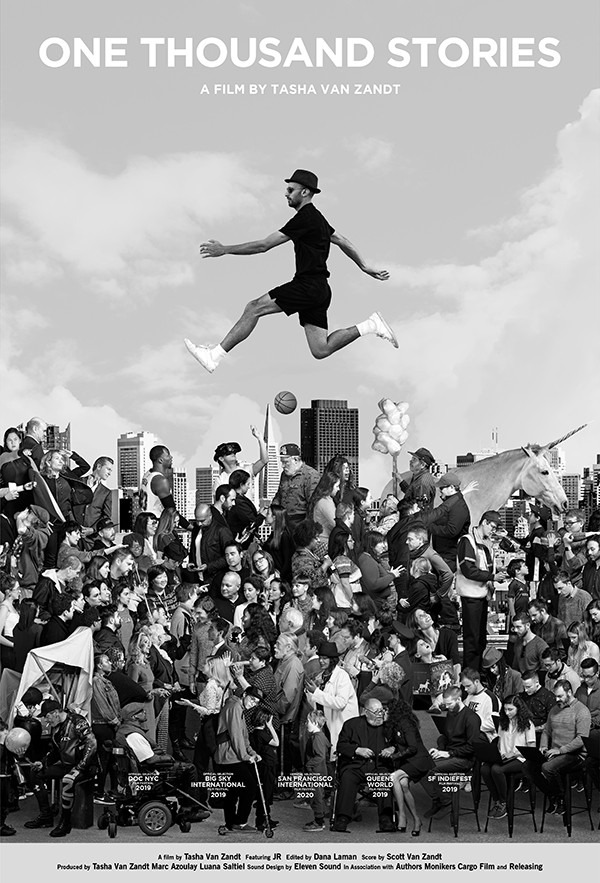
Upon entering the truck, I was fascinated by JR’s process, and noticed that there was no one to document the creation of the piece itself. After introducing myself and my work as a documentarian to JR, I asked if I could come back the next day to begin following their journey in the creation of this piece. Given the small space within the truck and the rapid pace of the project, I documented the process as a one-person crew, handling the camerawork, as well as sound. After all was said and done, the project brought together people from all walks of life into a single work of art from locations across the city. Over the course of a month, JR and his team set up his mobile studio in 22 locations around San Francisco, where he interviewed and photographed people across the city’s multifaceted communities. Everyone was photographed in the same light and same way, and no one was turned away. Long-inspired by the work of Mexican painter Diego Rivera, who completed three murals in San Francisco beginning in 1931, JR reimagined how a whole city and its diversity of residents can be represented together through art.
Throughout the project, I gathered as much coverage as possible to create an immersive edit with my editor Dana Laman, who is a close collaborator of mine. Together we worked for months after the project was complete, going through the footage to build the film in a way that felt immersive and true to the experience of the creation of the piece. The mural itself is a project that celebrates the power of connection through storytelling. In the completed work, a digital mural scrolls across a seamless bank of screens, bringing together the faces and untold stories of the people we encounter every day. As you go through the mural, you can click on the face of each participant and hear their story through an app that the team created.
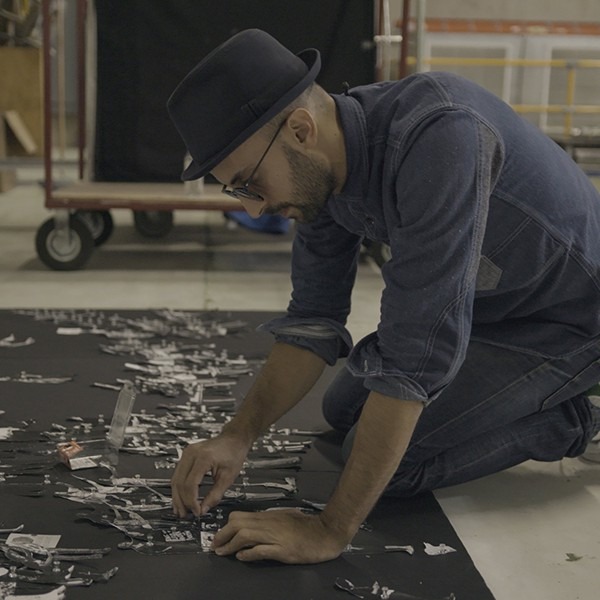
Throughout the creation of the project, I was moved by JR’s energetic embrace of the artistic process. He was constantly in such a present state of awareness with each participant, and was able to forge a genuine connection with so many people on such a large scale which was transformative to be able to see. One of the aspects that I find most beautiful about this mural is that everyone was able to choose how they wanted to be represented in the mural. In this way, it truly became a collaborative and participatory work of art between the artist and participants. It has been very special to reflect on this project during this time of isolation, and it’s a reflection of community within a city that is often divided. To see so many individuals united in one project is a powerful experience, and especially now that the world has changed so dramatically due to the COVID crisis, it truly feels as if this mural has become a time capsule into the past. The notion that JR was able to amass these disparate voices and characters into a single mural is a remarkable feat that has transformed my personal perspective on the power of art.
Much like JR stitched together the portraits and images to make the mural, my editor and I worked to stitch together the footage to create the edit that is One Thousand Stories. After the film was complete, it screened with JR’s mural at SFMOMA, and later was selected to screen in the Golden Gate Awards competition at the 2020 San Francisco International Film Festival as well as DOC NYC, Big Sky International Film Festival, the Museum of Moving Image, and the International Center For Photography. The film was the first of many collaborations with JR, and I have since had the opportunity to work with JR on the TIME magazine Guns in America project, The Chronicles of New York City project, and The Chronicles of Cuba project. Currently, we are in development together on a feature-length documentary about his work at the California Correctional Institution in Tehachapi.
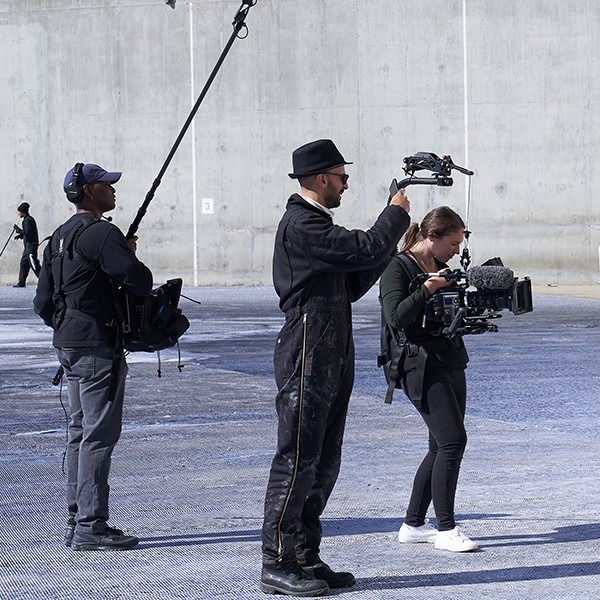
It’s been very special to reflect back on this project currently at this time of isolation. At the time of making the documentary and observing the creation of the mural, it certainly felt like a unique experience, but we could have never expected how truly remarkable it would become today. Currently, I am a 2020 SFFILM FilmHouse Resident, which has been a transformative anchor this year. With the pandemic, we’ve all had to adapt to immense change, but the robust and thriving film community in the Bay Area has been wonderfully supportive. The FilmHouse community has felt like a space where we can adapt and move forward into this new world together, and it’s been a privilege to learn from so many other filmmakers in this time.
Stories, much like life itself, have three parts: a beginning, a middle, and an end. Right now, it feels like we are all at the beginning of a new story, one which none of us can fully predict the ending yet. As Margaret Atwood once said, “when you are in the middle of a story it isn’t a story at all, but only a confusion. It’s only afterwards that it becomes anything like a story.” Although this is a time of great uncertainty, it can also be a time of discovery as well in the way in which we choose to build our new ending.
Storytelling, and specifically the craft of filmmaking, is such an important tool to transport us into perspectives outside of our own and build bridges that can lead to greater empathy. I fully believe in the power of film as a tool for change. The stories we tell matter. They shape our futures, and record our pasts. When I recall the mural that JR and his team created, I imagine the way in which future generations may regard it in a similar manner as the cave paintings or frescos of the past, as a document of a moment in time that helps us reshape our future.
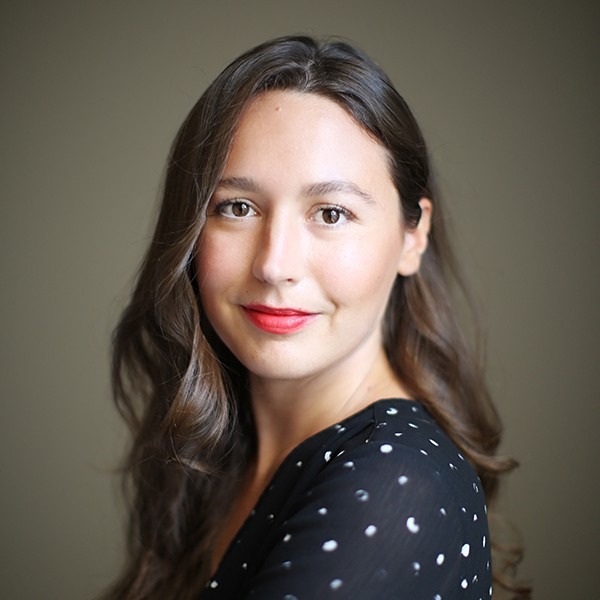
Tasha Van Zandt is a documentary film director, cinematographer, and Emmy-nominated producer who has traveled on assignment around the globe across all seven continents. Her most recent film, After Antarctica, is a feature-length documentary that follows the life of one of National Geographic’s most celebrated polar explorers. The project is supported by the Sundance Institute, Film Independent, and SFFILM, and will be released in early 2021. Van Zandt’s previous film, One Thousand Stories, offers an intimate look into the creation of the artist JR’s first interactive mural which was exhibited at the SFMOMA. The film was selected for the 2019 DOC NYC Festival, the 2020 Big Sky Documentary Film Festival, was selected to screen in the Golden Gate Awards competition at the 2020 San Francisco International Film Festival. One Thousand Stories can currently be streamed via several virtual cinemas nationwide. Her award-winning documentary series Five Minutes from Home with Stephen Curry garnered millions of views around the world, and featured guests such as E-40, Daveed Diggs, and many more. Her work has been commissioned by TIME magazine, the Guardian, PBS, NPR, Google, and Adobe, among many others. Throughout the year, Van Zandt leads photography and filmmaking expeditions around the world for National Geographic in places such as Tanzania, Iceland, Australia, and Japan. She is a 2019 Film Independent Documentary Lab Fellow, a 2019 Sundance Institute Fellow, a 2020 SFFILM Sloan Stories of Science Fellow, and a 2020 SFFILM FilmHouse Resident.
For more information about SFFILM’s artist development programs, learn more here.
Stay In Touch With SFFILM
SFFILM is a nonprofit organization whose mission ensures independent voices in film are welcomed, heard, and given the resources to thrive. SFFILM works hard to bring the most exciting films and filmmakers to Bay Area movie lovers. To be the first to know what’s coming, sign up for our email alerts and watch your inbox.
